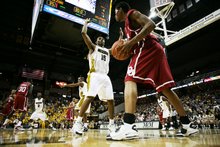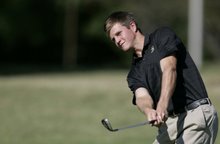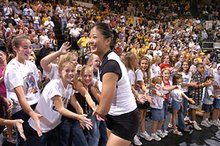Today's excerpt takes us back to the 1917-18 season, when a charter member of the Basketball Hall of Fame arrived in Columbia and laid a foundation that would help make the Tigers the nation's best team over the ensuing six-year span.
Few athletes are as largely forgotten as those who played basketball before World War II. Everyone knows legends from other fields of play: Babe Ruth, Red Grange, Joe Louis. But ask even a knowledgeable basketball fan to name a handful of great pre-war players and you're likely to receive a blank stare.
There are good reasons for this, not the least of which is basketball was a second-tier game in those days, far less popular than baseball, college football, or boxing. It also lacked a national stage, with the NIT and the NCAA Tournament coming into existence only in 1938 and 1939, respectively. Finally, and no less important, players from that era have been eradicated from the record books. Slower play, shorter seasons, and freshman ineligibility guaranteed this. Players simply could not score enough points during games, seasons, or careers to compete with more recent athletes, and statistics like rebounds and assists were not officially kept. This amnesia is unfortunate, especially for Missouri basketball loyalists, because the Tiger players of that era rank among the most accomplished in school history.
Yet more anonymous than the players of that era are its coaches, even the great ones. As evidence, try asking Missouri fans to name a coach who took over the Tiger program in his early thirties. Some will pick Quin Snyder, who arrived in Columbia in 1999 after serving as an assistant at Duke. Others might choose Norm Stewart, who returned to his alma mater in 1967 after six years as head coach at the State College of Iowa. But few—probably none—will mention Walter Meanwell, who became Missouri's coach in 1917 at age thirty-three. That is more than a little ironic because while Snyder and Stewart came to Columbia looking to build legacies at a major program, Meanwell arrived already established as the finest coach in the brief history of college basketball.






|